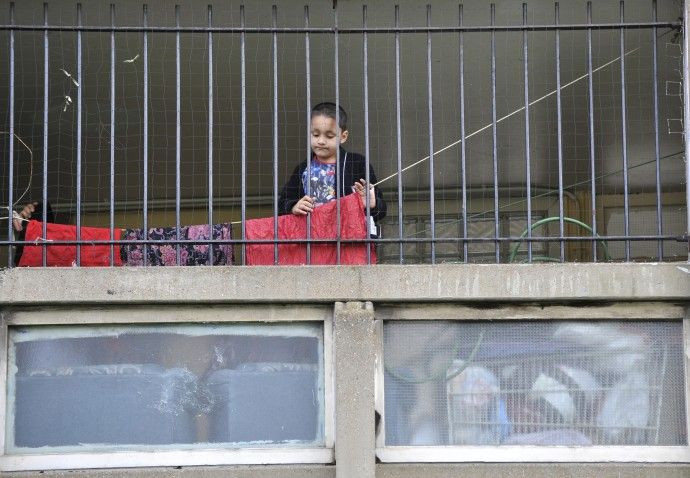Child poverty in Britain to rise: IFS

The fiscal squeeze promulgated by the British coalition government will increase child and working-age poverty in the U.K. over the next three years, according to a report funded by the Joseph Rowntree Foundation and published today by the Institute of Fiscal Studies (IFS).
Between 2010–11 and 2013–14, the study forecasts, average incomes will stagnate and both absolute and relative poverty among children and working-age adults are expected to rise.
“Among all children and working-age individuals, we forecast a rise in relative poverty of about 800,000 and a rise in absolute poverty of about 900,000 between 2010–11 and 2013–14,” said Robert Joyce, a research economist and an author of the report.
“We find that the coalition Government’s measures act to increase poverty among these groups slightly in 2012–13, and more clearly in 2013–14.”
Meeting the legally-binding child poverty targets in 2020 would
require the biggest fall in relative child poverty after 2013–14 since at least 1961, he added.
The study also estimated that between 2008–09 and 2010–11:
Absolute poverty amongst children will be roughly constant and that amongst working-age parents will fall by around 100,000, but absolute poverty among working-age adults without children will rise by about 400,000.
Relative poverty among children and working-age parents will both fall by about 300,000, but relative poverty amongst working-age adults without children will rise by about 100,000.
“The difference in projected poverty trends between families with and without children over this period is partly driven by above-indexation increases in the Child Tax Credit in April 2009 and April 2010,” the study explained.
Between 2010–11 and 2012–13 the IFS forecasts:
Absolute and relative poverty amongst children and working-age parents will remain “roughly constant.”
Poverty among working-age adults without children will continue rising, by about 300,000 and 200,000 for absolute and relative poverty respectively.
The Government’s tax and benefit reforms act to increase relative poverty in 2012–13 amongst each of children, working-age parents and working-age adults without children by about 100,000, and increase absolute poverty in 2012-13 by about 200,000 children, about 100,000 working-age parents and about 100,000 working-age adults without children.
The IFS report contradicts the government’s own claim that the 2010 Spending Review will have no measurable impact on child poverty in 2012-2013.
Beyond 2013-2014, poverty in Britain is likely to be affected
by the Universal Credit (a new government-proposed benefit which would replace six of the main means-tested benefits and tax credits.
An individual is described as being in relative poverty if he or she lives in a household whose income is less than 60 percent of the median household income in that year. For the purposes of the IFS report, an individual is considered to be in absolute poverty if he or she lives in a household whose income is less than 60 percent of the 2010–11 median household income in real terms.
So, while the absolute poverty line is fixed in real-terms, the relative poverty line will fall in real-terms between 2010-11 and 2013-14 as median income is forecast to decline.
© Copyright IBTimes 2024. All rights reserved.





















